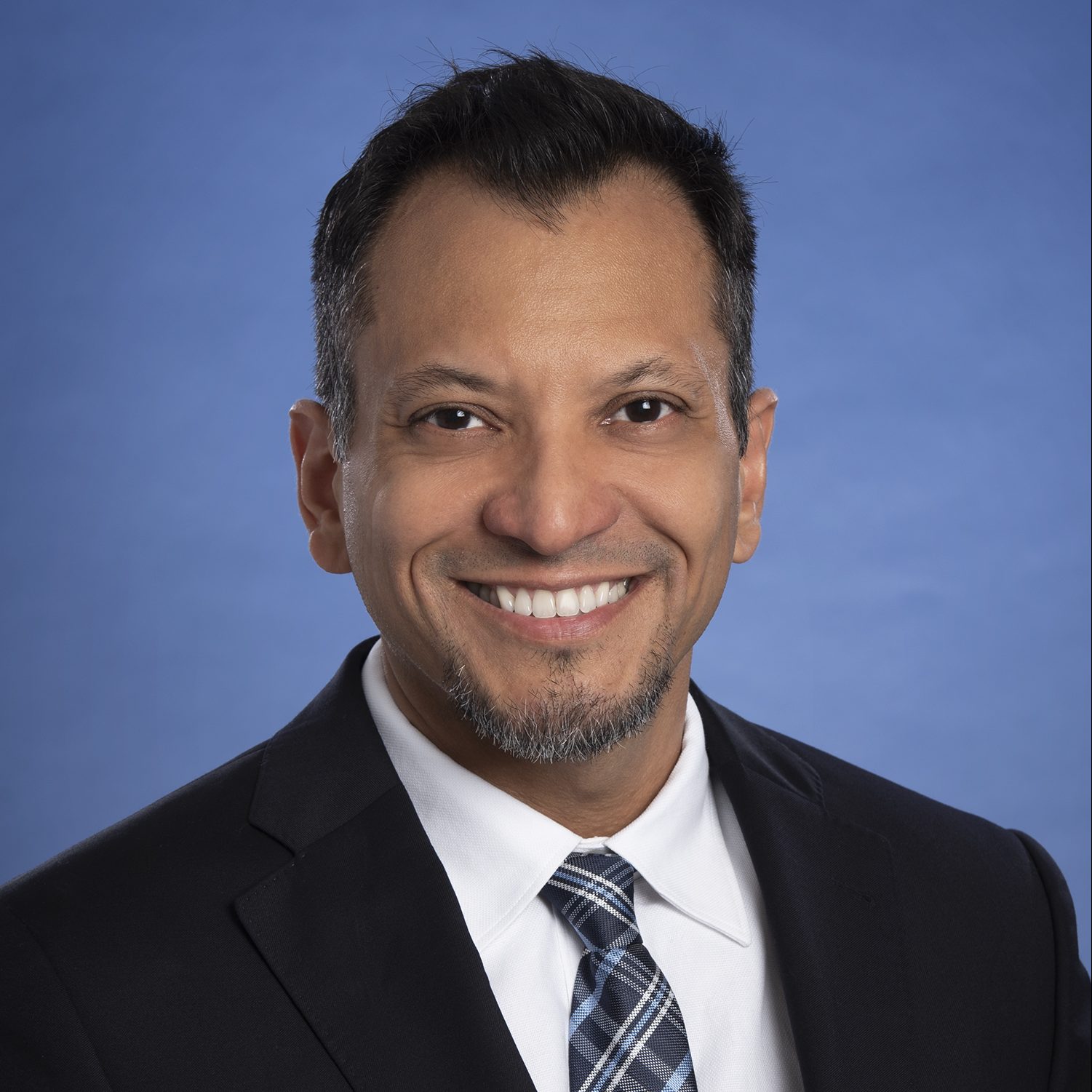Recent revelations from the “Twitter Files” in the United States and the “Lockdown Files” in the United Kingdom revealed a troubling relationship between prominent scientific institutions, the state, social media companies, and traditional media that shaped our COVID-19 response. The fallout on democratic institutions will have political and social consequences lasting well beyond the pandemic.
The core problem originates out of a hastily devised ‘scientific consensus’ in the early days of the COVID-19 crisis that imposed unprecedented and heavy-handed measures of social control for combatting the novel and highly infectious respiratory virus. While it is easy to assign opportunism to a handful of actors in such institutions, a more profound concern exists. The silence and silencing of biomedical scientists critical of the rapid and all-encompassing “scientific consensus” indicates a crisis not only for science but for academia itself and its role ensuring the survival of democratic institutions.
While COVID-19 was an undeniable health emergency, the social responses implemented to manage it generated a spiral of economic, social and political crises that necessitated the critical engagement of all academic disciplines, in particular the social sciences and the humanities to balance the potential oversights and dangers of one-sided biomedical and technocratic solutions at times of global crisis.
The social sciences and humanities, however, have remained largely absent from public discourse, and, when present, prominent scholars have largely given approval to the large-scale interventions that disenfranchised and marginalized large segments of the population in the name of protecting them. In our post-pandemic world, we believe the social sciences and humanities need to reclaim their critical spirit and independence by reckoning with their role during this period.
In the initial COVID-19 crisis response, we were told we only needed to “follow the science” – and by that it was meant that we needed to obey the vast array of modeling-based and data-poor arguments put forward by an influential number of epidemiologists to eradicate, curb and manage the newly discovered coronavirus unleashing a global health emergency. A social innovation emerged out of both modeling scenarios and the advent of internet technologies that allowed for people to work and study from home, the possibility of mass-scale quarantines of the healthy and sick alike promised to radically reduce and even eradicate the novel coronavirus.
This innovation entered the social vocabulary as “lockdown” – a concept previously used in carceral institutions or school shootings. To be sure, ‘lockdown’ arguments did not emerge out of academic or Public Health institutions in Europe or North America. After being implemented under the logics of infection control in China, it became the model to follow by governments across the world, even though many influential public health professionals were critical of their first imposition in that country, only to radically and abruptly reverse course within weeks.
Under this rapid institutional isomorphic mentality, citizens of wealthy democratic countries entered a new stage of crisis management that offered technoscientific arguments put forward by influential scientific networks. “Lockdowns” were haphazard interventions without a clear definition of what lockdowns meant in practice – for example, how many people should remain at home and for so long to be considered a ‘measurably successful lockdown?’ Does an intervention change if its goals focus on certain workplaces and not others, and from week to week as these interventions enter into indefinite stages? What are the consequences for its measurability as governments shift, expand, and contract the scope and length of such intervention?
Despite the lack of conceptual clarity, ‘lockdowns’ were presented as the technocratic solution that modeling sciences provided to virologists, epidemiologists. and medicine itself to ‘save’ us. It did not matter that lockdowns outside of China’s zero-COVID model left so many gaps. While scientists and media pundits would ridicule and wrongly characterize the Great Barrington Declaration’s approach as “let it rip,” the preferred consensus approach of lockdowns ended up being a “let it trickle,” artificially and temporarily suppressing the virus but still allowing it to circulate at lower levels. Even China, the last holdout, inevitably acknowledged the failure of their approach and, from one day to the next, reversed course and removed all restrictions after mass-scale protests rocked the country.
None of this is produced with 20/20 hindsight. In March of 2020 scholars in the health sciences as well as the social sciences and the humanities had a wealth of scholarship to understand the negative long-term effects of maximalist solutions to complex health and social problems. Therefore, in looking at how consent was manufactured during the pandemic, the role of the social sciences and humanities should not be overlooked.
Knowledge from the social sciences offered a far more nuanced perspective to how to handle the pandemic. A prominent example of this tradition was philosopher Giorgio Agamben’s role as a public intellectual in criticizing Italy’s COVID-19 response. Although highly respected and influential across the critical humanities and social sciences, Agamben’s historically informed critical concerns about the dangers of COVID-19 regulations made him persona non-grata amongst his own academic peers, who labelled him dangerous, senile, and irrelevant. The exclusion of Agamben from polite COVID-19 society was a warning for any critical voices in academia, especially those without tenured positions.
Scholars in the social sciences and humanities have traditionally positioned themselves as critics of the hubris of biomedical science, large-scale technocracies, and the total and coercive power of the state. As medical anthropologist and sociologist, we both come from social science disciplines that, prior to the COVID-19 crisis, were critical of everything we ended up uncritically accepting and doing during the pandemic.
A vast literature on the social determinants of health, a mainstay of the in the social sciences, taught us to be suspicious of focusing narrowly on individual disease transmission and to look at broader social, political, and economic contexts that shape vulnerability. This is so because quantitative and qualitative studies in our fields (so many that it is difficult to choose a few citations) pointed time and again to the failures of large-scale interventions that refuse to take into account local realities and how they so often generate conditions of suspicion, resentment, and backlash.
Social isolation and loneliness were considered serious public health problems, while diseases of despair pointed to underlying social conditions as urgent concerns. Rather than seeing people who reject public health measures within an “information deficit model” casting them as misinformed or malevolent imbeciles, scholars in our traditions tried to sympathetically understand their reasons for resistance; these reasons are often rooted in identifiable and measurable material conditions and not ideologies. Informed by the strength of such scholarship and historical data, we used to criticize public health campaigns based on blaming, shaming, and stigmatizing any group of people.
We understood that top-down and blanket public health interventions that require punitive enforcement often backfire and reinforce marginalization. In our fields, efforts to criminalize or police infectious disease transmission were targeted for rebuke.
It was until then no secret that these sensibilities for understanding grassroots contestation of large-scale interventions on the part of the state with its alliances with large private corporations were informed by a concern with the socio-political consequences of unregulated capitalism. As is well-known, academics in the social sciences and the humanities often lean ‘left’ on the political spectrum.
And so, unsurprisingly, scholarship in our disciplines has been historically critical of the role of pharmaceutical companies in raking in profit often at the expense of weak regulatory processes and questioning the way the benefits of so many pharmaceuticals were exaggerated while side effects so often downplayed and ignored. Finally, and perhaps most importantly, critical social scientists traditionally emphasized the contingent, political, and uncertain nature of scientific knowledge.
Considering the wealth of knowledge at our disposal, we would have expected critical public positions emerging out of official bodies in the academy, such as disciplinary associations, universities and faculties; think of universities’ public embrace of movements to address racial and gender inequities in recent years. COVID-19 politics, however, could be considered the great exception.
During the pandemic, most of these positions mentioned above that had been firmly ingrained in our academic knowledge became heresies and taboo. In educated circles, questioning any aspect of the COVID-19 scientific and social consensus was denounced as misinformation or “conspiracy theory.” And so, with few exceptions, the academic left either remained silently or acquiescent to public health interventions with a notable number, if not a majority, arguing that public health restrictions did not go far enough. Amid institutional silence, many social scientists mirrored the dominant public health voices used to justify the “scientific consensus” in areas as diverse as mask mandates, lockdowns, and vaccination passports.
They amplified a moralizing language of vulnerability to help quash or silence dissent. Even worse, in the polarization of COVID-19 response that mirrors larger political polarization, any criticism of public health measures would be spuriously linked to supporting white supremacy as we have argued elsewhere. We have learnt now that this polarization was supported by liberal-leaning media and its institutions who now largely refused to scrutinize their handling of the pandemic. In that influential social group, few – if any – figures associated with lockdowns and restrictions have expressed any regret over these policies or have acknowledged their failure.
Anyone familiar with social determinants of health literatures knows that the consequences of COVID-19 regulations will worsen the health outcomes of entire generations for years to come. More importantly, anyone in the general areas of scholarship in the social sciences and the humanities that touches on themes of gender and sexuality, race and ethnicity and above all, economic inequality know these facts.
Rather than point to the clear risks posed by these autocratic and technocratic solutions on what are often referred to as marginalized and vulnerable populations, prominent scholars embraced them in the name of protecting marginalized and vulnerable populations.
One of the best examples of this is Judith Butler, arguably one of the most influential names of the academic left. Butler’s recently published book, What World is This? A Pandemic Phenomenology provides a snapshot of the academic left’s distorted and monomaniacal approach to viewing the pandemic, which can only view harms from the virus but not harms from coercive restrictions; restrictions that are equated with being a caring person.
In the book, Butler’s views on vulnerability seem to reflect much of the social sciences orientation during the pandemic in which to oppose restrictions is equated with favouring euthanasia and wanting immunocompromised peoples to die. In that view, the public health lockdown, restriction, and mandate model is never questioned even as more evidence accumulates as to their failure. The moral certainty that this was the only way to manage the pandemic is absolute – no nuances and consideration of their effects on precarious workers. The idea that caring for others motivates their position rather than, as one could also equally and reasonably conclude from a class analysis perspective, the asocial fearing of others infecting them is also an unstated given.
The easing of lockdowns, restrictions, and mandates are uniformly equated with killing people and not only killing people but killing the most vulnerable and marginal members of society. So rather than acknowledging how, for example, school closings may have severely harmed the educational, social, and emotional development of the most vulnerable populations like children of low-income immigrant families, Butler refuses to touch this issue.
The only acknowledgement is to equate opening schools with sanctioning deaths, declaring “schools and universities have opened during pandemic peaks based on a calculation that only so many will fall ill and only so many will die.”
Arguing in the name of defending the most vulnerable as late as last year when the book was published, Butler cannot acknowledge that by that point in the pandemic practically the only people to not have been already exposed to the virus were academics like Butler who were able to work remotely and at a distance quasi-indefinitely.
However, Butler can moralize their position by – paternalistically, one could ironically conclude – claiming to protect the most vulnerable. Lest there be any confusion, her book index uniformly categorizes anyone critical of maximalist and permanent COVID-19 regulations as “Covid deniers, anti- vaxxers, mask and lockdown opponents.” This would ostensibly mean that anyone not still wearing a mask in all indoor gatherings or wishing to open schools in late 2022 was a “Covid denier.” In polarizing the issue, the only enemy Butler sees is a “triumphant libertarianism.”
In her dichotomy, the only choice that exists is saving lives or saving the economy. The economy in this sense is an activity seen to be detached from the everyday activities of people producing their material lives, often in small business which in places like Canada represent up to two-thirds of all economic activity. Yet, these were the industries where people struggled the most to keep their livelihoods alive as the governments imposed unprecedented measures on society.
In a way, what we witnessed was a narrow form of bio-medicalization of the political and moral imagination of prominent voices in the social sciences and the humanities. And so, rather than acknowledge the liberal public health fantasy of forever containing a highly transmissible respiratory virus, the lockdown model is naturalized as not only normal but the only moral option.
It is therefore noteworthy how the academic left became an odd bedfellow with the dominant epidemiological modelers, mainstream liberal media pundits, Big Pharma, and the bureaucratic governing liberal elite. Perhaps a class analysis is necessary as they shared with journalists and tech workers the privilege of being a ‘stay-at-home’ class that made them insulated from the collateral damage of the pandemic restrictions that they advocated.
The working classes, on the other hand, were hit by both sides – already most exposed to the virus in factories and service industries, but also hit hardest by pandemic measures. One would think that the socialist core of the academic left would have engaged deeper with these contradictions. Instead, most ignored them and, as restrictions inevitably began easing, even began doubling down on their rhetoric with a puritanical zeal.
COVID-19 landed in an impoverished information ecology – especially in academic institutions – where increasingly all forms of information and arguments are vetted through ideological lines. In other words, arguments are measured against an always moving line of demarcation based on their suspected rootedness in simplistic political camps.
These cultural phenomena delegitimize the role of academic institutions in society and ‘science’ itself. That unprecedented mass-scale undemocratic and harmful regulations were implicitly and explicitly embraced by almost the entirety of the educated classes bears witness to this.
Examining the fallout of this “odd alliance” amongst the professional and managerial classes, which includes academics in the social sciences and the humanities is imperative. This is so because the failure of the social sciences and humanities as disciplines to produce counter discourses to avert the aftermath of the maximalist COVID-19 consensus puts into question the critical role and the independence of the entire university system moving forward in the post-pandemic world.
Social scientists and humanities scholars, especially those protected by tenure track positions, have a responsibility to proactively critique any rapidly formed ‘elite’ consensus – even when such consensus is at least on the surface benevolent and undertaken as a humanitarian call for “protecting the vulnerable” and “saving lives.”
In the end, there is a long line of critiques of humanitarian discourses as it reproduces unwarranted class inequalities and other forms of privileges. The uniform alignment of academic disciplines with the COVID-19 regime needs to be interrogated as the whole purpose of disciplinary traditions is to offer a diversity of entry points, factors to consider, levels of analysis, and the historically informed unveiling of unintended consequences to any solution – again even if benevolent – to a problem facing humanity. This independence is essential in moments of crisis.
We need to ensure the space for authentic and unrestrained academic freedom, and that includes respectful engagement with dissenting ideas in educational institutions and the media. This is essential not just for the survival but the flourishing of these vital institutions and democracy itself.
Join the conversation:

Published under a Creative Commons Attribution 4.0 International License
For reprints, please set the canonical link back to the original Brownstone Institute Article and Author.










